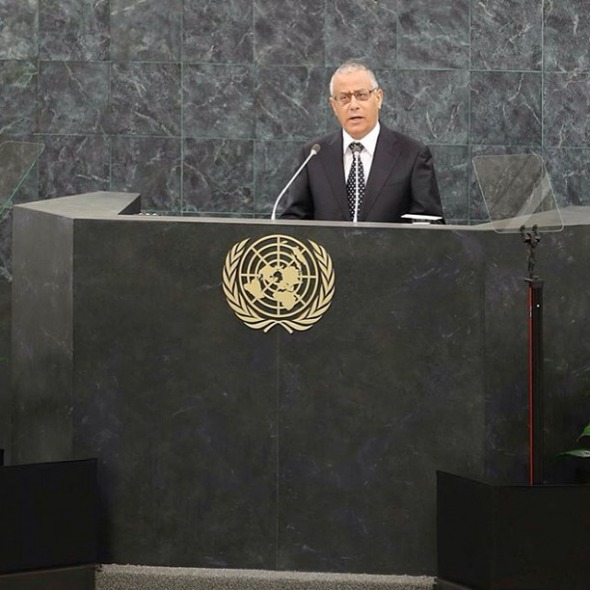By Sami Zaptia.
Tripoli, 26 September 2013:
At a press conference held yesterday evening at the Al-Waddan hotel, former Prime Minister-Elect and former Deputy . . .[restrict]Prime Minister Mustafa Abushagur launched the ‘’Restoring Hope Initiative for Libya’’.
The initiative is to ‘’save the nation and restore hope’’ after the interim government’s ‘’inability to realize a minimum of achievements’’ especially in security which has exacerbated the crises without any signs of any breakthrough, Abushagur said in his opening statement.
Abushagur also blamed the GNC which he said is ‘’split’’ and its ‘’inability to do some important decisions required at this critical stage’’ rendering it ‘’incapable of lifting the country out of the current crises’’.
Equally, Abushagur felt that there is not sufficient time in the lifetime of the GNC to ‘’elect the Constitutional Commission (the ‘’Committee of 60’’)’’ in order to ‘’adopt a permanent constitution’’ and hold general elections, which would therefore necessitate the ‘’extension of the GNC’s term’’ and ‘’thus prolong the stage of instability’’ in Libya.
Abushagur therefore has come up with an initiative that he said was reached after ‘’expanded consultation’’ to find a way out of the current political impasse.
The former Prime Minister elect, despite describing it as ‘’incapable’’ reconfirmed the legitimate role of the current GNC as pivotal to the way forward into democracy by electing the committee of 60 to draft the constitution and set up election for a fully mandated parliament.
However, his initiative is that the current Temporary Constitutional Declaration of August 2011 be ‘’amended’’ so that it becomes an ‘’interim constitution’’ enabling Libyans to a ‘’general election’’ which would choose a ‘’head of state’’ and a ‘’national parliament’’ of 200 members.
The Temporary Constitutional Declaration of August 2011 social contract that currently governs the relationship between the ruling and ruled classes of Libya as well as being the political road map for Libya.
The election of this ‘’parliament’’ would be conducted on the basis of ‘’independent’’ candidates without the participation of political parties by March 2014 and for a duration of 27 months (June 2016).
Moreover, in order that this whole new initiative is given a mandate and legitimacy, there is also to be a referendum to approve the process and to specifically amend the current Temporary Constitutional Declaration of August 2011. The amendment would allow for the election of a parliament and the ‘’direct’’ election of a head of state (president).
Secondly, the referendum would affirm the separation of powers and give the newly appointed president the authority to form a government under his leadership, subject to confirmation by parliament.
Abushagur felt that only this initiative would get Libya out of its current political stalemate and hasten the stalled constitutional and political process which has dragged on leaving the country in political, economic and security limbo.
This initiative would also hasten democratization and give the necessary time for Libyans to debate and understand the myriad of political theories processes and institutions that have to consider prior to signing up to any particular constitution or political system.
It will be recalled that Mustafa Abushagur served as Deputy Prime Minister under the Al-Kib government and then succeeded in being elected as Prime Minister, only to fail to obtain the GNC’s approval for two proposed governments which led to his elimination as Prime Minister.
He was succeeded by the former GNC member and current Prime Minister Ali Zeidan. [/restrict]








